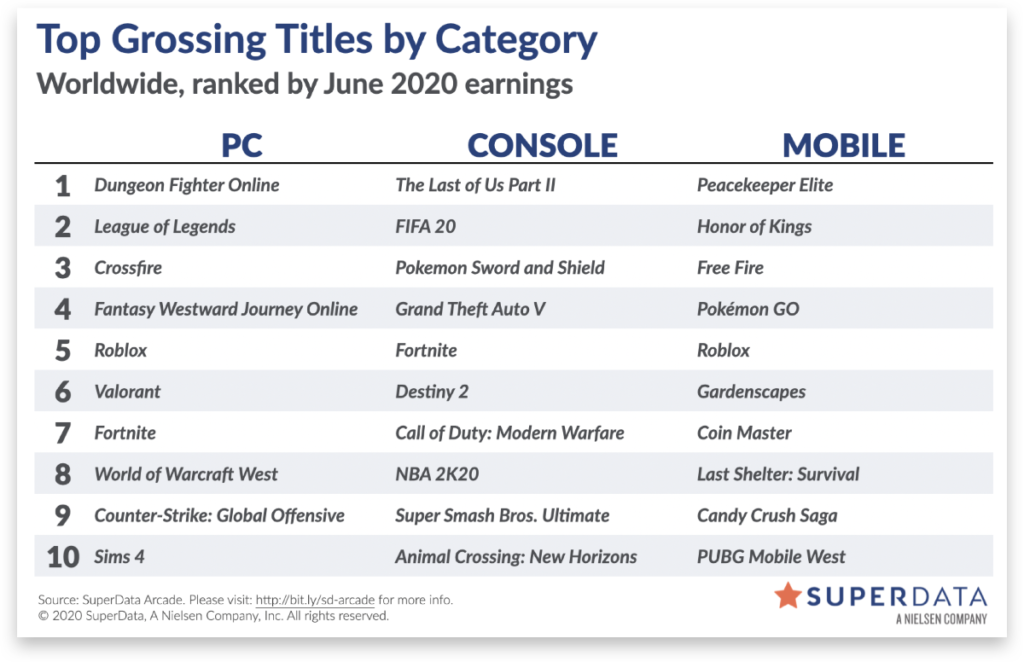
It’s time for our monthly check-in on how the games industry is doing according to SuperData’s numbers, and don’t worry – they’re all still making bank thanks to the global pandemic.
“Digital games generated $10.46B in revenue in June 2020, the second-highest total ever after April 2020’s $10.54B sum,” the analytics firm says. “Overall earnings were up 3% from May ($10.2B) and 9% over June 2019 ($9.6B). Both PC and console revenue were down from their 2020 peaks set in March. This was offset by growth in mobile revenue, which hit an all-time high. Mobile game spending typically sees a boost in the summer months, and this seasonal growth was likely further bolstered by the limited availability of other entertainment options due to COVID-19.”
On the PC list, League of Legends and Dungeon Fighter Online have traded places once again, Roblox is still at #5, and the entry of Valorant and resurgence for Fortnite bumped World of Warcraft and CSGO down to eighth place and ninth place, respectively. World of Tanks has been usurped by The Sims 4, too, which amuses us.
On the console side, we note the return of Destiny 2 and dips for Animal Crossing New Horizons and GTAO. SuperData specifically called out Destiny 2’s numbers rising “substantially” thanks to the new season, with earnings jumping 221% as lapsed players flooded into the game. As for GTAO, SuperData points to the lack of core content to the game; the last big patch was in December of 2019. Turns out you gotta update the game to make a lot of money, who knew? Finally, Valorant is highlighted as the “biggest launch ever for a free-to-play PC title.”
“Digital games generated $10.46B in revenue in June 2020, the second-highest total ever after April 2020’s $10.54B sum. Overall earnings were up 3% from May ($10.2B) and 9% over June 2019 ($9.6B). Both PC and console revenue were down from their 2020 peaks set in March. This was offset by growth in mobile revenue, which hit an all-time high. Mobile game spending typically sees a boost in the summer months, and this seasonal growth was likely further bolstered by the limited availability of other entertainment options due to COVID-19.”














